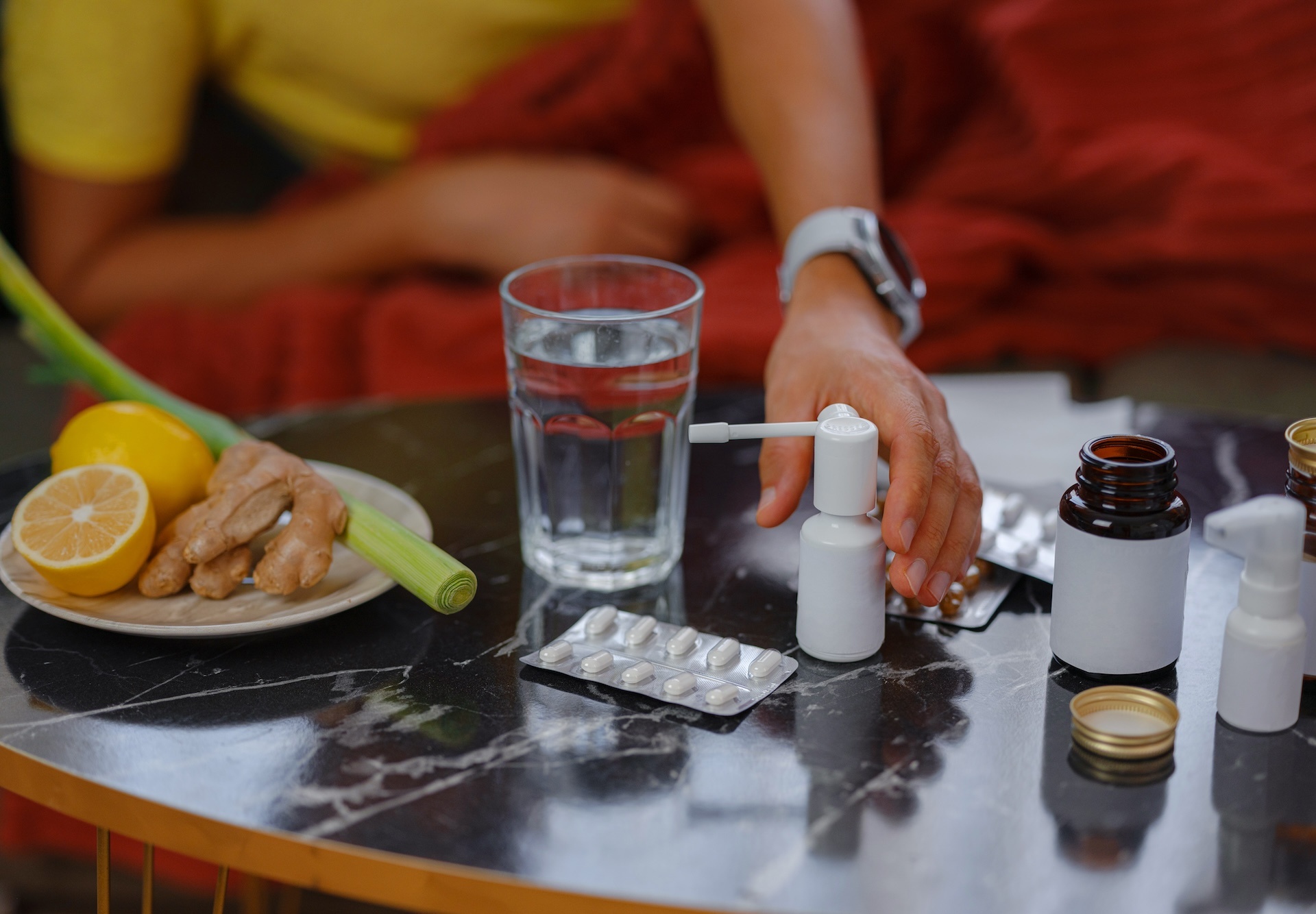Pain Pill Addiction Treatment


Explore effective pain pill addiction treatment methods and steps for a recovery journey at The Forge Recovery Center.
Struggling with pain pill addiction can feel isolating, but you are not alone in this battle. Recognizing the signs early is crucial to managing and overcoming addiction effectively. With the right support and tailored treatment strategies, it's possible to regain control and move towards a healthier, pain-free life. This article will guide you through various effective treatment options and supportive measures that can help you on your journey to recovery.
Understanding Pain Pill Addiction

Pain pill addiction, often termed opioid use disorder when involving opioids, describes the compulsive misuse of prescription painkillers outside of a medical guideline. This addiction commonly involves opioids like oxycodone, hydrocodone, morphine, and fentanyl, which are prescribed for pain relief but are also highly addictive due to their euphoric effects.
Biological and Psychological Factors Contributing to Addiction
Addiction to pain pills is influenced by both biological and psychological factors:
1. Biological Influences:
Brain Chemistry Changes: Painkillers act on the brain's opioid receptors, reducing pain and releasing high levels of dopamine, the feel-good neurotransmitter. Regular use changes brain chemistry, leading to physical dependence.
Tolerance Development: Over time, the body requires higher doses of painkillers to achieve the same pain-relieving effects, increasing the risk of addiction and overdose.
2. Psychological Influences:
Emotional Pain Management: Individuals suffering from emotional or psychological distress might misuse painkillers to manage feelings of anxiety, depression, or trauma.
Euphoria Seeking: The euphoric effect provided by painkillers can serve as a temporary escape from life's stresses, leading to repeated use and eventual addiction.
Understanding the complex interplay of these factors is essential for developing targeted treatment strategies that address both the physiological dependencies and psychological needs of those struggling with pain pill addiction. Each person’s experience with addiction is unique, necessitating personalized and compassionate treatment approaches.
Signs and Symptoms of Pain Pill Addiction
Recognizing the signs and symptoms of pain pill addiction is crucial for early intervention and effective treatment. Addiction can manifest through various physical, emotional, and behavioral changes, often disrupting personal, professional, and social aspects of life.
Physical Signs:
Increased Tolerance: Needing more of the medication to achieve the same effects, which often leads to higher doses and increased frequency of use.
Withdrawal Symptoms: Experiencing physical symptoms like sweating, shaking, nausea, and vomiting when not taking the drug.
Neglect of Personal Grooming: Declining interest in physical appearance and personal hygiene.
Unexplained Health Issues: Frequent drowsiness, changes in sleep patterns, headaches, and other unexplained ailments.
Emotional Signs:
Mood Swings: Rapid and unexplained changes in mood, ranging from euphoria to intense sadness or irritability.
Defensive Attitude: Becoming overly sensitive or defensive about drug use when questioned.
Decreased Motivation: Loss of interest in activities previously enjoyed, leading to social withdrawal and isolation.
Anxiety and Depression: Persistent feelings of sadness or anxiety, especially when drugs are unavailable.
Behavioral Signs:
Doctor Shopping: Visiting multiple doctors to obtain more prescriptions.
Secrecy and Lying: Being secretive about whereabouts and activities, lying about the amount of drugs taken.
Neglecting Responsibilities: Failing to meet commitments at work, school, or home due to preoccupation with drug use.
Legal or Financial Problems: Encountering legal issues, such as arrests for possession, or financial problems due to spending substantial amounts on acquiring drugs.
By understanding these signs and symptoms, you or someone you care about can take the necessary steps toward seeking help and recovering from pain pill addiction. Early detection and intervention can significantly improve the outcome of addiction treatment.
Are You Struggling with Mental Health or Addiction?
We Can Help. Call Us Now!
CALL: 877-839-1772
The Detox Process

Detoxification is the initial step in overcoming pain pill addiction, and it's crucial for clearing the body of addictive substances in a safe and controlled environment. This process can be challenging but is essential for recovery, setting the foundation for deeper therapeutic interventions.
The Detoxification Process In Detail
Detox typically begins with an assessment by medical professionals who will evaluate the physical and psychological health of the individual. This assessment helps in developing a personalized detox plan, considering factors like the duration and severity of the addiction, the types of substances used, and any co-occurring mental health conditions.
Once the plan is established, the actual detox process starts. It involves managing the acute withdrawal symptoms that occur when the body begins to adjust to the absence of the drug. Medical supervision is critical during this phase to ensure safety and provide the necessary medical interventions to alleviate withdrawal symptoms.
Common Withdrawal Symptoms
Withdrawal symptoms can vary widely based on the individual's health, the type of painkiller used, and the duration of use. Common symptoms include:
Muscle aches and pains
Insomnia or disturbed sleep
Nausea and vomiting
Sweating or chills
Rapid heartbeat and increased blood pressure
Anxiety and irritability
Mood swings and depression
Management in a Controlled Environment
In a controlled detox environment, medical professionals can provide support and treatments to manage these symptoms safely. This may include:
Medication-assisted treatment (MAT): Using medications like buprenorphine, methadone, or clonidine to reduce cravings and ease withdrawal symptoms.
Hydration and nutritional support: Ensuring the body is well-hydrated and nourished to aid in the recovery process.
Psychological support: Offering counseling and support to help manage the emotional and psychological challenges of withdrawal.
The goal of detox is not only to manage withdrawal safely but also to prepare the individual for the next steps in addiction treatment, which will address the underlying causes of addiction and promote long-term recovery. This structured environment ensures that the individual can transition smoothly from detox to ongoing treatment, significantly increasing the chances of success.
Treatment Options

Inpatient Vs. Outpatient Rehab: Benefits and Considerations for Each
Choosing between inpatient and outpatient rehab is a critical decision that depends on the severity of addiction, personal circumstances, and the support system available to the individual.
Inpatient Rehab:
Benefits: Offers a structured and immersive treatment environment, away from daily triggers. This setting provides around-the-clock medical and emotional support, which is crucial for those with severe addiction or co-occurring mental health disorders.
Considerations: Inpatient rehab requires a significant commitment of time, usually 30 to 90 days, and might not be suitable for individuals with responsibilities that cannot be paused, such as certain job duties or caregiving roles.
Outpatient Rehab:
Benefits: Allows individuals to continue their daily activities, such as work or school, while receiving treatment. Outpatient programs can range from several hours a week to nearly full-time, depending on the intensity of the program.
Considerations: This type of rehab requires strong personal discipline and a supportive home environment, as the exposure to daily stresses and potential triggers remains.
The Importance of Personalized Treatment Plans
At The Forge Recovery Center, we emphasize the importance of personalized treatment plans that cater to the unique needs of each individual.
Understanding that every recovery journey is different, our specialists craft tailored plans that may include a combination of medical detox, individual therapy, group sessions, and support for mental health issues. By addressing the specific challenges and goals of each patient, these personalized plans enhance the effectiveness of treatment and support long-term recovery.
Are You Struggling with Mental Health or Addiction?
We Can Help. Call Us Now!
CALL: 877-839-1772
Therapies and Support Systems
Overview of Therapies Used in Treatment
Various therapeutic approaches are employed to address the complex facets of addiction, including:
Cognitive-Behavioral Therapy (CBT): Helps patients recognize and change negative thinking patterns and behaviors associated with substance use.
Group Therapy: Facilitates healing through peer support and shared experiences, which can enhance motivation and reduce feelings of isolation.
Family Therapy: Involves family members in the recovery process, helping to repair relationships and improve communication.
The Role of Support Systems
A robust support system is vital for successful recovery. Support from family, friends, and community resources can provide the encouragement needed to navigate the challenges of recovery.
At The Forge Recovery Center, we also integrate community support groups like Narcotics Anonymous (NA) or Alcoholics Anonymous (AA) into our treatment plans, offering additional layers of support. Family involvement is encouraged through family therapy sessions and educational programs, ensuring that loved ones are not only supportive but also informed and engaged throughout the treatment process.
Each of these elements—therapies and support systems—plays a critical role in holistic recovery, addressing both the symptoms and the root causes of addiction, and equipping individuals with the tools needed for a healthier, drug-free life.
Recovery and Aftercare

Recovery from pain pill addiction is a continuous journey that extends beyond initial treatment. Effective aftercare is crucial to sustain recovery and prevent relapse.
Strategies for Sustaining Recovery and Preventing Relapse
Maintaining sobriety requires ongoing effort and the implementation of strategies learned during treatment:
Developing Healthy Routines: Establishing a structured daily schedule that includes time for work, hobbies, exercise, and relaxation can help reduce the risk of relapse.
Continuous Learning and Growth: Engaging in ongoing therapy sessions or educational programs to reinforce coping strategies and learn new ones.
Monitoring and Managing Triggers: Identifying personal triggers and having a plan in place to manage them effectively is crucial. This might include avoiding certain environments, managing stress through mindfulness or relaxation techniques, and staying connected with supportive peers.
The Role of Aftercare Programs in Maintaining a Drug-Free Life
Aftercare programs play a pivotal role in the recovery process by providing continued support and resources:
Support Groups: Participating in support groups like Narcotics Anonymous (NA) offers a community of individuals who share similar experiences and challenges, which can enhance personal accountability and encouragement.
Follow-up Therapy and Counseling: Regular sessions with a therapist or counselor help to address any emerging issues, reinforce coping strategies, and support emotional well-being.
Wellness Programs: Programs focusing on overall wellness, including physical health, mental health, and spiritual growth, can significantly contribute to maintaining long-term sobriety.
These aftercare components ensure that individuals not only remain drug-free but also continue to develop a fulfilling and balanced life, reducing the likelihood of relapse.
Are You Struggling with Mental Health or Addiction?
We Can Help. Call Us Now!
CALL: 877-839-1772
Pain Pill Addiction Taking Over? We'll Help You Take It Back
At The Forge Recovery Center, we understand the critical importance of seeking help for pain pill addiction. Our personalized treatment plans are designed to meet your unique needs, providing the support necessary for a successful recovery journey. If you're ready to take the first step towards a healthier, drug-free life, we are here to guide and support you every step of the way. Remember, recovery is within reach, and The Forge Recovery Center can help you reclaim your life from addiction.
Are You Struggling with Mental Health or Addiction?
We Can Help. Call Us Now!
CALL: 877-839-1772





